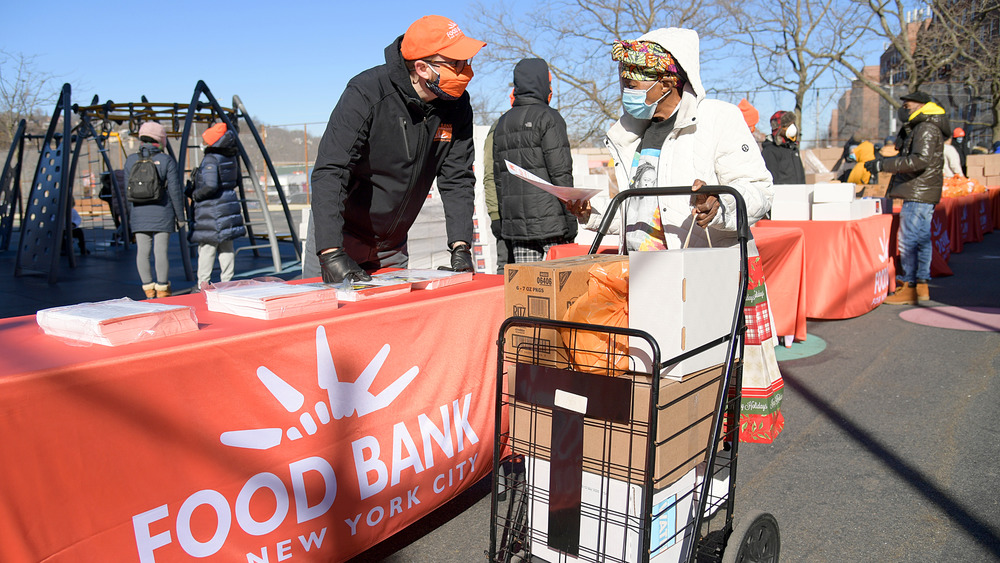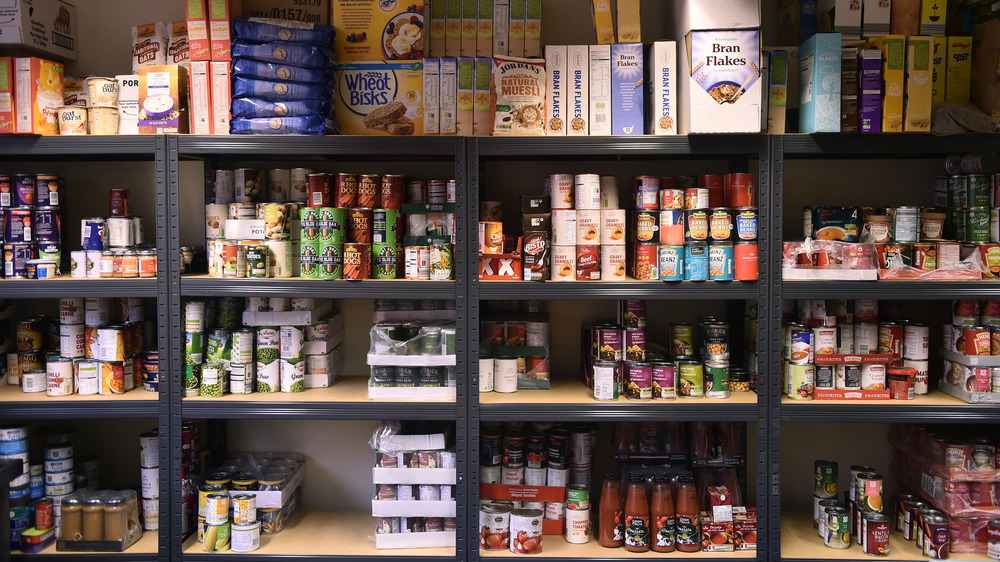Foods You Should Never Donate To A Food Bank
Even though 89.5 percent of America had enough food to eat in 2019, that still means that 13.7 million US households were food insecure at some point during the year (via USDA Economic Research Service). The coronavirus pandemic has only made matters worse. According to NPR, Northwestern University found in June 2020 that food insecurity has doubled since the pandemic began, and even tripled when it came to households who have children. Donating to a food bank may be the most obvious way to help reduce the level of food insecurity in America.
Indeed, food banks are crucial institutions, especially during the pandemic. AP found that millions of Americans turned to food banks for the first time since March 2020. Specifically, AP reported the organization Feeding America had a 60 percent increase in food bank users since the pandemic started. But if you're thinking of giving away all the old pantry items you don't want in order to help the cause, think again. Here are the foods you should avoid donating to a food bank.
Be considerate with your food bank donations
Food banks are places where real, hungry people go to acquire sustenance for their families. They're not places to chuck your mysterious canned goods that have seen better days. Anti-hunger nonprofit Feeding America has a handy list on their website of what to donate to food banks, and what to avoid.
Most importantly, Feeding America states that most food banks will only accept items that are non-perishable and shelf-stable — i.e.: foods that don't require refrigeration. They also won't accept food cooked in home kitchens, due to potential safety issues. Feeding America also points out that canned and boxed goods should be in quality condition, so nothing that's dented, bloated, expired, or prone to breakage (aka, no glass containers).
If you're still feeling stuck, Feeding America offers this piece of wisdom: "If you wouldn't consider buying it new, don't donate it." Or, better yet, skip the food donations and give cash. According to New York magazine, many food banks have wholesale arrangements allowing them to buy grocery items at a steep discount, meaning a donation as small as a dollar will go a long way.

